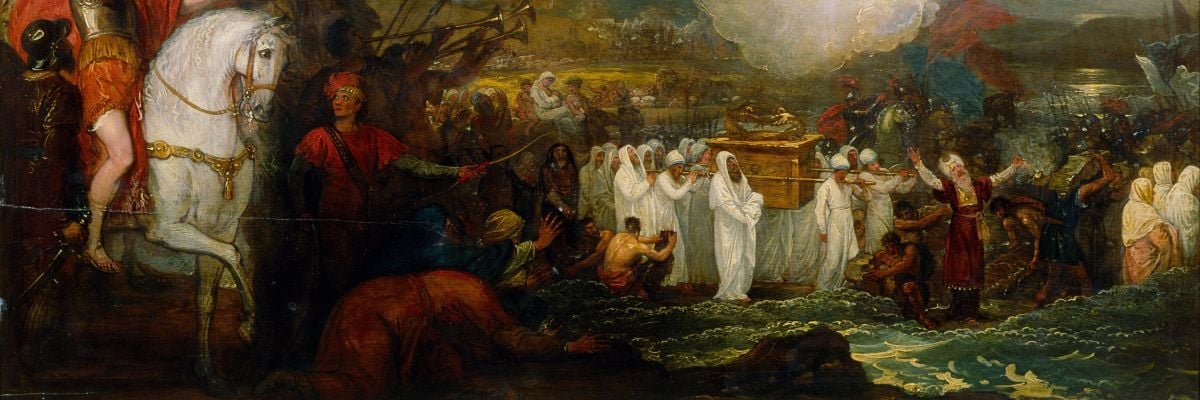
Question:
Answer:
In Catholic theology, we believe that—in general—prophecies of the Old Testament almost always have an immediate and imperfect fulfillment in the time of the Old Covenant, and then a fuller and final fulfillment in the New Covenant. In this case, the immediate fulfillment is Joshua. However, he could be the full and final fulfillment because of the phrase “like me.” Deuteronomy 34:10 tells us something specific about that descriptor that would only be fulfilled in Christ:
And Joshua the son of Nun was full of the spirit of wisdom, for Moses had laid his hands upon him; so the people of Israel obeyed him, and did as the LORD had commanded Moses. And there has not arisen a prophet since in Israel like Moses, whom the LORD knew face to face, none like him for all the signs and the wonders which the LORD sent him to do in the land of Egypt, to Pharaoh and to all his servants and to all his land (Deut. 34:9–11, emphasis added).
What separated Moses from all other prophets was his “vision” or “sight” of God. Exodus 33:11 says God spoke “to Moses face to face.” Exodus 33:20 clarifies that Moses saw God’s “back,” because “you cannot see my face; for man shall not see me and live.” So, in verse 23, the Lord said, “You shall see my back; but my face shall not be seen.”
Thus, the “face to face” reference does not mean Moses actually saw God’s face, as in the beatific vision; rather, it means he had an intimacy with God that no other prophet ever had, including Joshua! But, according to prophecy, there would be this “prophet,” or “the prophet,” as he came to be referred to in Jewish tradition, who would be the only prophet greater than Moses, the Messiah. This is why the Jews would ask Jesus, “Are you the prophet?” in John 1:21.
It is for this reason that Jesus Christ is the ultimate fulfillment of Deuteronomy 18:15. Jesus was the only person who had an ongoing “vision” of God: “Truly, truly, I say to you, the Son can do nothing of his own accord, but only what he sees the Father doing; for whatever he does, that the Son does likewise” (John 5:19, emphasis added). In other words, Jesus had the beatific vision (CCC 1028) even as he walked the earth: “No one has ever seen God; the only Son, who is in the bosom of the Father, he has made him known” (John 1:18).
The idea here is that Jesus is the only human who has seen God: “Not that anyone has seen the Father except him who is from God; he has seen the Father (John 6:46).”
Jesus is not only “the prophet” who would be superior to Moses, but—as God—he was and is infinitely superior to Moses and is the full and final fulfillment of Deuteronomy 18:15.



